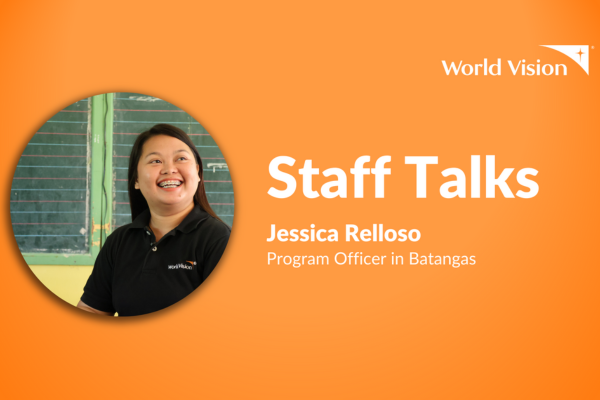Important role a woman plays as a mother and village health worker
By Roxanne Angelika S Dela Cruz | Field and Emergency Communications Specialist
SULTAN KUDARAT— Stephanie, 38, a mother of two, has been caring for her second child Melvin Jr., 10, who was born with congenital adrenal hyperplasia (CAH), a group of genetic disorders that affect the adrenal glands.
Children with CAH may have symptoms of vomiting, severe dehydration, low blood pressure, early puberty, and short adult height.
“I felt lost at times, but I must fight for my son’s well-being,” Stephanie says.
She admits that life is doubly challenging for her as a mother because of her son’s illness and medical-related expenses. When Melvin was a baby, she needed to travel with him to another city, which is a six-hour drive from their village, merely for consultation. Ensuring that Melvin was ok while traveling and the high transportation cost were some of the things that Stephanie had to go through.

“He’s on a lifelong medication,” Stephanie shares tearfully. The family has to spend around Php12,000 ($220) quarterly for Melvin’s consultation and medication.
Her husband, Melvin Sr, 38, earns Php375 ($7) doing construction work. To help pay for the medical expenses, Stephanie sometimes does occasional laundry and harvests calamansi which earns her between Php200-Php300 ($4-$5) a day. The family’s income from the rice business, a World Vision livelihood project, of Php800 ($14) is where they get their daily needs such as food and school allowances for their two children.
Despite Melvin’s health condition, Stephanie considers her son as a blessing. “God has a purpose why things happen. I always remind Melvin to trust Him.” Melvin, a World Vision-assisted child is now in Grade 5.
While looking after her sick son, Stephanie is also caring for other people’s health as the village’s health worker or Barangay Nutrition Scholar (BNS). “I didn’t have second thoughts when I took this role because I wanted to promote health and nutrition, especially among children. I know how important it is because of my experience with Melvin.”

A BNS monitors the nutritional status of all children and other nutritionally at-risk groups and links them with government services. Like all BNS, Stephanie gets paid Php1000 ($18), which she adds to pay for her son’s medicines.
Despite the meager incentive that Stephanie gets from being a BNS, she works hard. She ensures that parents know what to do when their children are ill. Often, parents in rural areas are afraid or not familiar with how to approach doctors or avail of medical services. With her experience, Stephanie has been a great help to parents to understand what they should do.
She remembers that she once encouraged a mother whose son has congenital hypothyroidism to see a doctor for a better diagnosis and what to do. “When parents don’t want to bring their children to the doctor, I talk to them about the importance of seeing a doctor,” she says.

Her diligence in promoting health and nutrition earned her the Most Outstanding Barangay Nutrition Scholar award in 2023. “I believe the Lord wanted me to become BNS to help the children and parents learn the importance of health and nutrition.”
The hardships that Stephanie went through all these years have made her a more understanding and compassionate woman. To all women, she has this advice: “I want to tell all the women out there who are struggling to keep their faith and keep praying. God tests our faith with problems because He believes in us. He gave us all these because we can overcome these, especially as women.”








